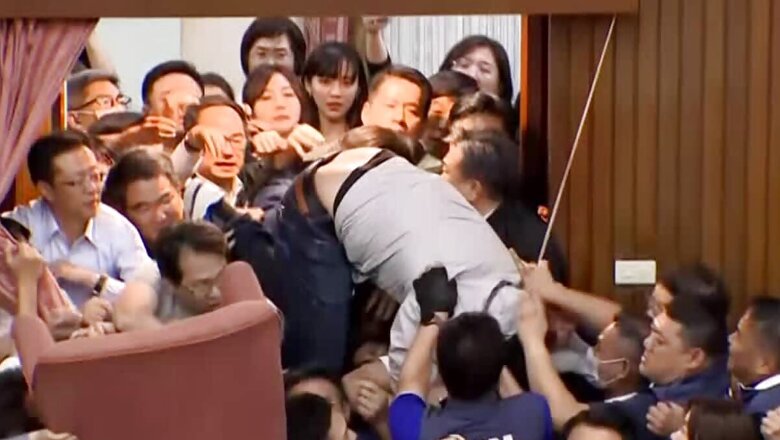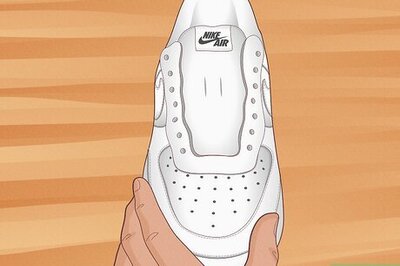
views
Taiwanese lawmakers went in for an all-out brawl in parliament on Friday in a dispute about reforms to the chamber, just days before President-elect Lai Ching-te takes office without a legislative majority.
Even before votes started to be cast, some lawmakers screamed at and shoved each other outside the legislative chamber, before the action moved onto the floor of parliament itself. On May 17, lawmakers surged around the speaker’s seat, some leaping over tables and pulling colleagues to the floor.
Though calm soon returned, there were more scuffles in the afternoon. Lai, who is to be inaugurated on Monday, won January’s election, but his Democratic Progressive Party (DPP) lost its majority in parliament.
Taiwanese lawmakers shoved, tackled and hit each other in parliament in a bitter dispute about reforms to the chamber, just days before president-elect Lai Ching-te takes office without a legislative majorityhttps://t.co/IO33n6gEEG pic.twitter.com/lxxwMQ6uUS— Reuters (@Reuters) May 17, 2024
The main opposition party, the Kuomintang (KMT), has more seats than the DPP but not enough to form a majority on its own, so it has been working with small Taiwan People’s Party (TPP) to promote their mutual ideas. The opposition wants to give parliament greater scrutiny powers over the government, including a controversial proposal to criminalise officials who are deemed to make false statements in parliament.
The DPP says the KMT and TPP are improperly trying to force through the proposals without the customary consultation process in what the DPP calls “an unconstitutional abuse of power”. “Why are we opposed? We want to be able to have discussions, not for there to be only one voice in the country,” DPP lawmaker Wang Mei-hui, representing the southern city of Chiayi, told Reuters.
Lawmakers from all three parties were involved in the altercations, and traded accusations about who was to blame. The KMT’s Jessica Chen, from the Taiwan-administered Kinmen islands that sit next to the Chinese coast, said the reforms were to enable better legislative oversight of the executive branch. “The DPP does not want this to be passed as they have always been used to monopolising power,” she told Reuters.
(With agency inputs)




















Comments
0 comment